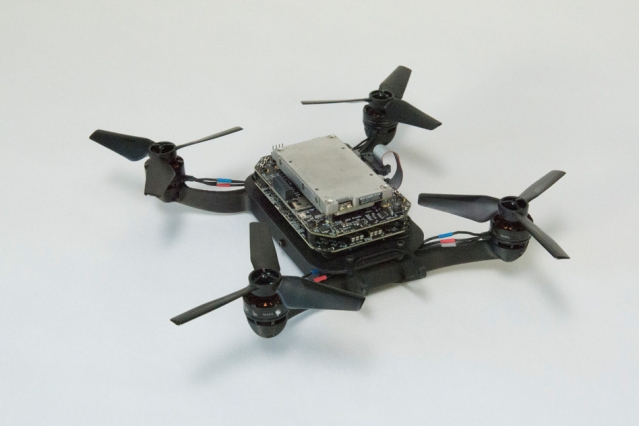While drones can fly with great speed, controlling them gets a little difficult, especially when bumping into the most basic obstacles at high speeds can cause a drone to fail out. To fix this problem, MIT engineers came up with a VR training system specifically for drones. This enables the flying vehicles to “see” and react to a virtual environment while flying around in an empty physical space.
The system has been dubbed “Flying Goggles” and will be used to reduce the number of crashes that the drones experience in real-life training sessions. At the same time, it can serve as a foundation for any other types of tests the researchers might want to train the drones in.
Sertac Karaman, associate professor of aeronautics and astronautics at MIT, has said that the system is “a game changer in the development of drone technology.”
“If anything, the system can make autonomous vehicles more responsive, faster, and more efficient.”
Karaman was initially motivated by competitive drone racing. The sport made him wonder if an autonomous drone could be trained to fly even faster, with improved precision and control.
Using “Flight Goggles,” Karaman and his team create mazes filled with obstacles and allow the drone to practice navigating them. They hope that through this learning process, the drone will learn to move faster than a human attempting the same maneuvers. During the experiments with “Flight Goggles,” the drone, flying at 2.3 meters per second (5 miles per hour), flew through a virtual window 361 times and “crashed” into it three times.
As a final test, the drone was set up to fly through an actual window in the testing facility. Using the navigation algorithm tuned in the virtual system, the drone was able to fly through the real window 119 times, crashing or requiring human assistance only six times.
For now, the “Flight Goggles” system is only intended for aerial drones, but there are potential applications for ground-based vehicles.
Karaman and his colleagues will present the details of their VR training system at the IEEE International Conference on Robotics and Automation in Australia this week.
Follow TechTheLead on Google News to get the news first.



















